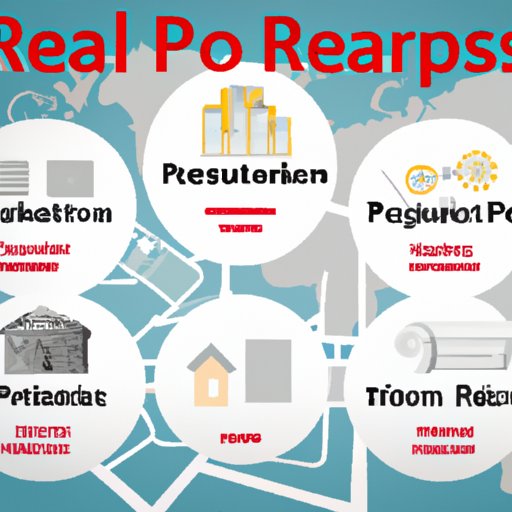Introduction
Starting a successful real estate business can be challenging but rewarding. It requires a strategic plan that outlines the steps you need to take to reach your goals. This article will provide an overview of how to start a real estate business plan, including outlining your goals and objectives, identifying the market you will serve, developing a business plan, securing funding and creating a network of professionals.

Outlining Your Goals and Objectives
The first step in starting a real estate business is to define your goals and objectives. This will help you determine what type of business you want to create and how you plan to achieve success. You should consider factors such as your desired income level, the types of properties you want to invest in and the areas you want to focus on.
You should also set measurable objectives for yourself. This could include increasing your customer base, expanding into new markets or improving your efficiency. By setting goals and objectives, you can track your progress and make changes if needed.
In addition to defining your goals and objectives, you should also estimate the start-up costs associated with your business. These costs can include obtaining licenses and permits, purchasing property and equipment, and hiring staff. Knowing these costs upfront can help you budget and plan accordingly.

Identifying the Market You Will Serve
Once you have outlined your goals and objectives, you should research local real estate trends to identify the market you will serve. Consider the types of clients you wish to serve and the types of properties they are interested in. Understanding the competition in the area is also important so you can determine how to differentiate yourself from other real estate businesses.
When researching the market, you should also look at economic indicators such as population growth, job growth, housing prices and rental rates. This information can help you better understand the market and make informed decisions about which properties and areas to focus on.
Developing a Business Plan
After you have identified the market you will serve, it’s time to develop a business plan. This plan should include the legal structure of your business, such as whether you will operate as a sole proprietorship, partnership or limited liability company. You should also choose a name for your business and register it with the appropriate authorities.
Your business plan should also include a marketing plan. This should outline how you plan to promote your business and attract new customers. You should consider factors such as advertising, public relations, digital marketing and networking.
Securing Funding
Start-up costs can be significant, so you may need to secure funding to get your business off the ground. Research potential funding sources, such as banks, venture capitalists and private lenders. Prepare a loan proposal that outlines your business plan and financial projections.
You may also need to utilize personal assets to fund your business. This could include using savings, taking out a loan against your home or borrowing money from family and friends. Make sure you understand the terms and conditions of any loan you take out.

Creating a Network of Professionals
As a real estate business owner, it’s important to create a network of professionals who can help you succeed. Connect with other real estate professionals in the area, such as brokers, agents and appraisers. Develop relationships with lenders, contractors and other service providers who can help you with your business.
You should also join professional organizations, such as the National Association of Realtors and the National Association of Home Builders. These organizations can provide valuable resources and networking opportunities.
Using Technology to Stay Ahead of the Curve
Technology is changing the way people buy and sell real estate, so it’s important to stay ahead of the curve. Utilize online tools such as websites, CRM software and virtual tours to make your business more efficient and attractive to potential customers. Leverage social media to connect with customers and create awareness of your brand.
You should also utilize mobile applications to make it easier for customers to find and view properties. These apps can also help you manage your business and connect with customers on the go.
Conclusion
Starting a real estate business requires careful planning and due diligence. To be successful, you should outline your goals and objectives, identify the market you will serve, develop a business plan, secure funding and create a network of professionals. Utilizing technology can also help you stay ahead of the curve.
By following these steps and having a clear vision for your business, you can position yourself for success. With hard work and dedication, you can create a profitable and rewarding real estate business.
(Note: Is this article not meeting your expectations? Do you have knowledge or insights to share? Unlock new opportunities and expand your reach by joining our authors team. Click Registration to join us and share your expertise with our readers.)
